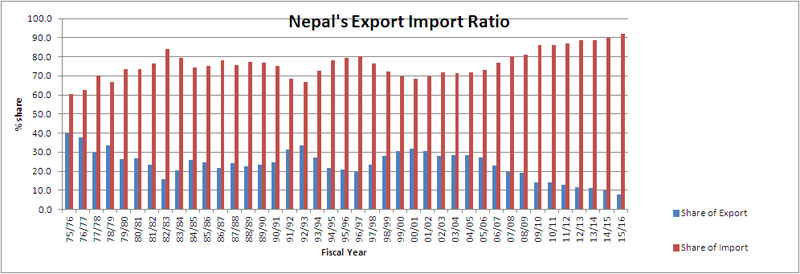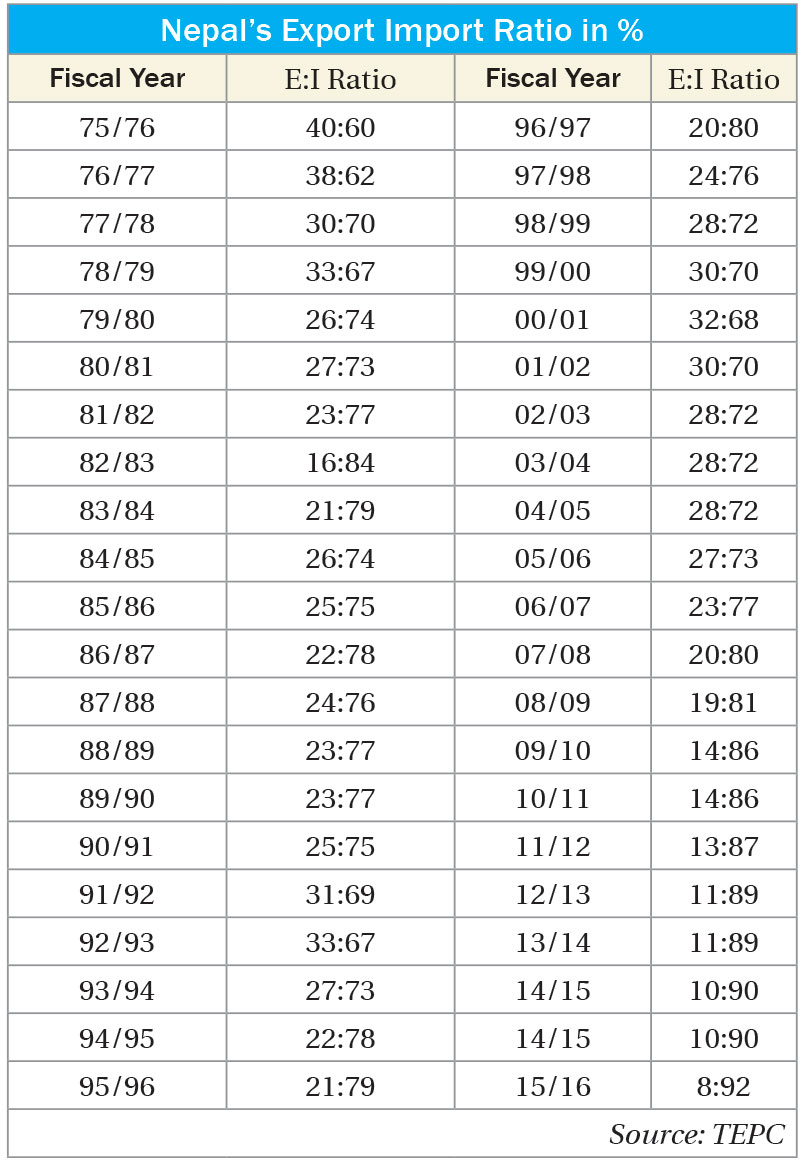Nepal is not a coastal state. But we pursue trade policies as if we are a coastal state
A shift in foreign policy also calls for a paradigm shift in domestic policies. Nepal’s non-isolationist foreign policy after the dawn of democracy in 1951 thus brought about numerous changes in national priorities and programs. Export became a national priority and export promotion was recognized as mainstay of our economic diplomacy. Supporting institutions were established to boost export trade and Nepal became a signatory to many bilateral, regional and multilateral trade agreements.
Donor agencies have spent a lot on export promotion in Nepal. Most of the developed countries as well as our two big neighbors grant either duty free/quota free access or provide preferential market access for Nepali products, even at the expense of their own industrial interests. The Ministry of Finance has also spent on programs proposed by line agencies, be it on export promotion and import substitution or on economic diplomacy.
But none of these efforts have borne fruits. Stagnating exports, skyrocketing imports and galloping trade deficit are the norms rather than exceptions today.
The government had introduced some promotional schemes to promote export such as bonus voucher scheme and dual exchange rate facilities.
But they were all misused. Easier market access granted by our magnanimous friends was misinterpreted as a market access for substandard Nepali products. By taking advantage of open border between Nepal and India and the existing tax provisions of India, dubious export activities grew exponentially. Sporadic boom and unexpected sudden fall in most of Nepal’s export products are the results of such tricks.
Nepal is not a coastal state. Therefore our policies, priorities and programs should be different to that of a costal state. But we pursue policies as if we are a coastal state. Most of our export industries are reliant on imported raw materials, with scant value addition, which is corroding competiveness of our exports. Instead of making high-value, low-volume products mainstay of export, we are still sticking to low-value, high-volume products. Unfortunately our policy regime does not correct this mistake.

As a landlocked country, we have to please the coastal states. The best strategy to maintain good relation with coastal states is the least use of transit route. Our policies need to shift accordingly, starting with self-dependence in national security, food, fuel, weaponry and manpower. The focus should also shift to high-value, low-volume products (in commodity trade) and religious tourism and oriental studies (in service trade).
Domestic climate determines competitiveness of our products in international market. Nepali products are not competitive largely due to the absence of peaceful industrial climate.
Reviving Sanskrit

The state is helpless before syndicates and cartels. Sister organization of ruling parties brazenly shut down industries. Financial support from the government and donor agencies is often drained in publishing books, organizing seminars, conducting field studies and foreign visits.
We want to promote agriculture and industry but we are exporting our labor force and converting fertile lands into concrete jungles. Our efforts in the past six decades have thus failed to bring positive change in our trade balance. Our export-import ratio was between 40:60 and 30:70 before 2005. It has now plummeted to a ratio of 8:92. One should not be surprised if our exports plunge to nil. So what should be done?
Our economic policies should be realigned as per our geopolitical reality. Finished products from local raw materials, native techniques, domestic investment and Nepali labor should be the national priority. For this indigenous products should be preserved, industrialized and protected with patents, copyright and geographical indication measures. Then we need to create a favorable environment to promote such products.
The author is a senior officer at Trade Statistics and Analysis Section of the Trade and Export Promotion Centre (TEPC)




































